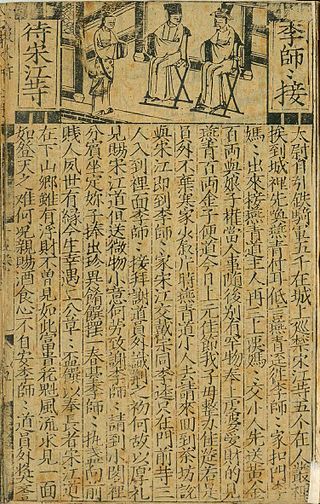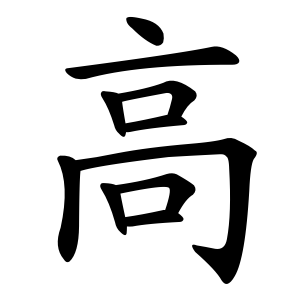
The history of China spans several millennia across a wide geographical area. Each region now considered part of the Chinese world has experienced periods of unity, fracture, prosperity, and strife. Chinese civilization first emerged in the Yellow River valley, which along with the Yangtze basin constitutes the geographic core of the Chinese cultural sphere. China maintains a rich diversity of ethnic and linguistic people groups. The traditional lens for viewing Chinese history is the dynastic cycle: imperial dynasties rise and fall, and are ascribed certain achievements. Throughout pervades the narrative that Chinese civilization can be traced as an unbroken thread many thousands of years into the past, making it one of the cradles of civilization. At various times, states representative of a dominant Chinese culture have directly controlled areas stretching as far west as the Tian Shan, the Tarim Basin, and the Himalayas, as far north as the Sayan Mountains, and as far south as the delta of the Red River.

劉 / 刘 is an East Asian surname. pinyin: Liú in Mandarin Chinese, Lau4 in Cantonese. It is the family name of the Han dynasty emperors. The character 劉 originally meant 'battle axe', but is now used only as a surname. It is listed 252nd in the classic text Hundred Family Surnames. Today, it is the 4th most common surname in Mainland China as well as one of the most common surnames in the world.

The Jin dynasty, officially known as the Great Jin, was an imperial dynasty of China that existed between 1115 and 1234. Because the Wanyan clan that founded the dynasty were of Jurchen descent, it is also sometimes called the Jurchen dynasty or the Jurchen Jin.

Zhao is a Chinese-language surname. The name is first in the Hundred Family Surnames – the traditional list of all Chinese surnames – because it was the emperor's surname of the Song dynasty (960–1279) when the list was compiled. The first line of the poem is 趙錢孫李.

Water Margin is one of the earliest Chinese novels written in vernacular Mandarin. It is one of the Four Classic Chinese Novels and is attributed to Shi Nai'an. It is also translated as Outlaws of the Marsh and All Men Are Brothers.

Song is the pinyin transliteration of the Chinese family name 宋. It is transliterated as Sung in Wade-Giles, and Soong is also a common transliteration. In addition to being a common surname, it is also the name of a Chinese dynasty, the Song dynasty, written with the same character.
For most of its history, China was organized into various dynastic states under the rule of hereditary monarchs. Beginning with the establishment of dynastic rule by Yu the Great c. 2070 BC, and ending with the abdication of the Xuantong Emperor in AD 1912, Chinese historiography came to organize itself around the succession of monarchical dynasties. Besides those established by the dominant Han ethnic group or its spiritual Huaxia predecessors, dynasties throughout Chinese history were also founded by non-Han peoples.
Emperor Wu or the Wu Emperor is the posthumous name of numerous Chinese rulers:
Fang is the 67th most prevalent Chinese surname. In Chinese, Fāng (方) means "square" or "four-sided". Fāng (方) is pronounced Fong in Cantonese, Hong or Png or Pwee in some Min Nan dialects and Png or Pung in Teochew. It is the 56th name on the Hundred Family Surnames poem.

Gao is an East Asian surname of Chinese origin that can be literally translated as "high" or "tall". There are approximately 17 million living people with this surname. Some places, such as Taiwan, usually romanise this family name into "Kao". In Hong Kong, it is romanized to "Ko". In Macau, it is romanized to "Kou". In English, it is romanized to "Kauh". In 2019 it was the 19th most common surname in Mainland China. The Korean surname, "Ko" or "Koh", is derived from and written with the same Chinese character (高).

The Yuan dynasty, officially the Great Yuan, was a Mongol-led imperial dynasty of China and a successor state to the Mongol Empire after its division. It was established by Kublai, the fifth khagan-emperor of the Mongol Empire from the Borjigin clan, and lasted from 1271 to 1368. In Chinese history, the Yuan dynasty followed the Song dynasty and preceded the Ming dynasty.
The economic history of China is covered in the following articles:
Xia is the Mandarin pinyin romanization of the Chinese surname written 夏 in Chinese character. It is romanized Hsia in Wade–Giles, and Ha in Cantonese. Xia is the 154th surname in the Song dynasty classic text Hundred Family Surnames. As of 2008, it is the 66th most common Chinese surname, shared by 3.7 million people.
Bao or Pao is the pinyin romanization of two Chinese surnames, 包 and 鮑/鲍. It could also be a sinification of the Mongolian surname Borjigin. It is also a Vietnamese surname.
Mu is the pinyin romanization of several Chinese surnames.
Jiang is one of the oldest Chinese surnames, being one of the original xing (姓) surnames. It was one of the "Eight Great Xings of High Antiquity", along with Jī (姬), Yáo (姚), Yíng (嬴), Sì (姒), Yún (妘), Guī (媯) and Rèn (妊), though some sources quote Jí (姞) as the last one instead of Rèn. Of these xing, only Jiang and Yao have survived in their original form to modern days as frequently occurring surnames. It is the 32nd surname listed in the Song dynasty-era Hundred Family Surnames poem. It is the 60th most common surname in China (2007), roughly 0.34% of the Han Chinese population. The Lu clan of Fanyang stem from this surname before taking on the Lu (盧) surname. Derivative surnames of Jiang include Zhang, Lü, Qiu, Shen., These originated:

Shǐ (史) is a Chinese surname meaning "history" of "official historiographer". It is romanized Shih in Wade–Giles, or Sze or Si in Cantonese romanization. According to a 2008 study, it was the 82nd most common name in China. A 2013 study found that it is shared by 2.85 million people, or 0.210% of the population, with the province with the most people being Henan. It is the 63rd name on the Hundred Family Surnames poem.
Wǔ is a Chinese surname. It is pronounced Mo in Cantonese. In Vietnamese is written Vũ or Võ. As a Chinese word, it carries the meanings "martial", "military", "martial arts".
Mong or Meng is a Chinese surname. It is a xing (姓). The surname is typically romanised as Meng in Mandarin and Mong or Mung in Cantonese. Other romanisations include Mông, Muhng, Mang, and Bong.








